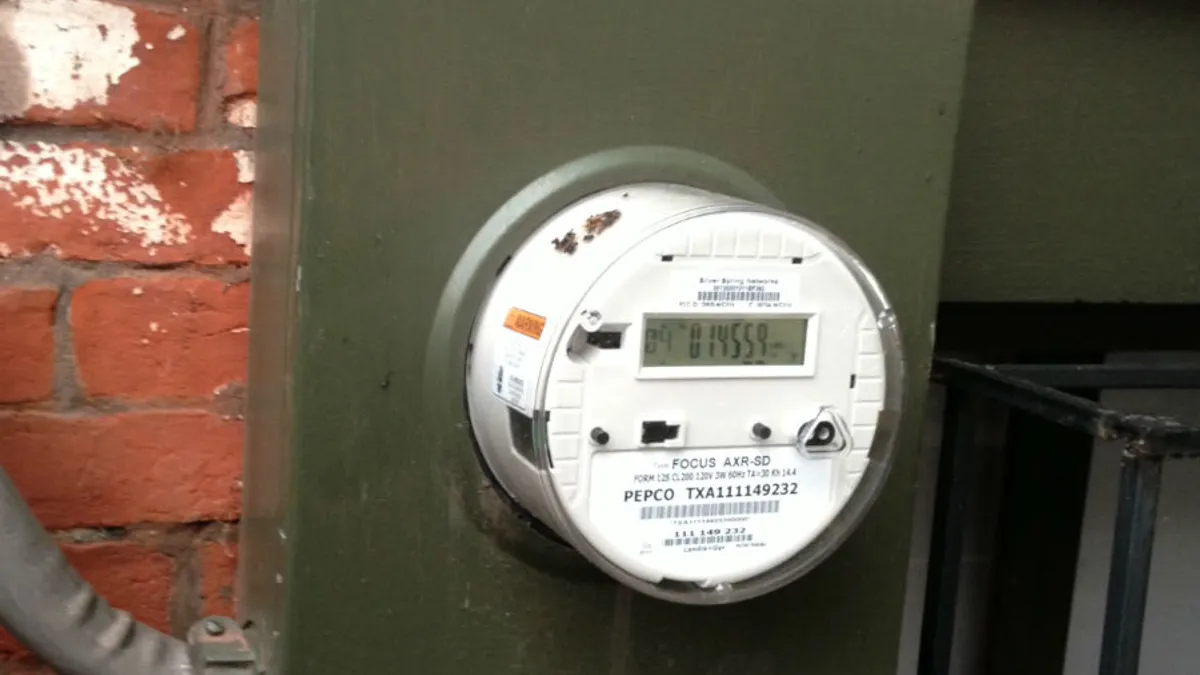Dive Brief:
- Renewable natural gas and green hydrogen could be used to help the District of Columbia affordably reach its 2050 carbon neutrality goal while avoiding costly grid upgrades, Washington Gas told the D.C. Public Service Commission in comments filed Tuesday.
- The utility was responding to an electrification study filed by Sierra Club in March, which concluded the city is "ideally poised for electrification" and must overhaul its building stock in order to achieve its clean energy goals. Electric utility Potomac Electric Power Company, or Pepco, concluded in its own 2021 assessment that affordable electrification is possible for the nation's capital.
- Sierra Club's study calls for building codes to support all-electric new buildings and incentives to electrify existing structures. Pepco estimates electrification could raise peak loads by 1.4% to 1.7% annually through 2050, and says that is "well below growth rates that Pepco has reliably managed in the past."
Dive Insight:
How Washington, D.C., reaches 2050 carbon neutrality could depend on the cost of renewable natural gas — which electrification advocates say is likely to be expensive.
Washington Gas in 2020 filed a Climate Business Plan that called for using renewable natural gas and hydrogen to meet 2050 goals. But energy analysis nonprofit RMI told District regulators in filed comments that some studies estimate renewable natural gas will cost $7-$20/MMBtu by 2040 "in an optimistic scenario."
According to the U.S. Energy Information Administration, spot gas prices have recently traded around $7/MMBtu but historically they have been lower.
But not all buildings and transportation electrification needs "are most efficiently and affordably met by supplying more electricity through the electric grid or by on-site renewable energy generation," Washington Gas said in its comments filed this week. And there are reliability and resiliency benefits to using existing pipelines, the utility said.
The existing pipeline infrastructure "can be leveraged to power on-site highly efficient combined heat and power installations" as well as helping to avoid "massive investment and customer costs required to upgrade the electric grid."
Pepco says its grid will need to be upgraded to accommodate higher demand, but it expects to spread that investment over almost 30 years.
"We do expect to look to continue to invest in the platform," Pepco Senior Manager of Strategic Planning Pearl Donohoo-Vallett said. The utility has submitted a five-year action plan with 62 programs to help the district meet its decarbonization goals, but must still file applications with cost and benefit details in order to implement them. The programs include building decarbonization and have "particular emphasis on the principles of equity and inclusivity and affordability," according to the utility.
The plan includes "incentive programs for under-resourced communities to switch to efficient electric devices." Through a low-income home weatherization pilot program, Pepco plans to offer incentives for customers who use propane, fuel oil, or kerosene as their primary heating "to help them transition to an efficient electric heat
pump."
The utility said it anticipates serving 7,500 customers through the pilot program over the next three years.
"We absolutely do want to make sure that all customers can adequately join in that energy transition," Donohoo-Vallett said. "We know that partnerships are going to be important to reach all of our different customers across the District. And we also know that it's an all hands on deck approach to reaching all of our customers."
RMI told regulators that equity provisions should be put in place for low-income customers to be among the first to electrify. As wealthier customers leave the gas system, "low-income customers will be left to pay for the gas infrastructure maintenance costs, further increasing rates."
"For these reasons, it’s important that low-income ratepayers be among the first, not the last, to electrify," RMI said.
"One way to do it, is to offer heat pump incentives ... through energy efficiency programs, to convert from natural gas," said Susan Stevens Miller, a senior attorney with Earthjustice's clean energy program. The group represents Sierra Club in the D.C. Public Service Commission proceeding.
There is no D.C.-specific analysis of what heat pumps would cost, said Stevens Miller, but general research shows them to be cheaper than a gas furnace over the lifecycle of the appliance.
"There's a whole bunch of ideas percolating right now about incentives," she said. New federal weatherization funds could be used for fuel switching, and combined with other incentives. "The idea is to take the monies that are available through this program and through other federal programs, and to specifically target them to moving people off of fossil fuels," Stevens Miller said.
It isn't clear yet what will result from this proceeding, said Stevens Miller. All filings and replies should be submitted by the fall; Sierra Club will be commenting on Pepco's five-year business plan and Washington Gas' own proposal this summer.
"Then the commission will have all the information it's asked for, and then it can decide what the next steps will be," she said.















